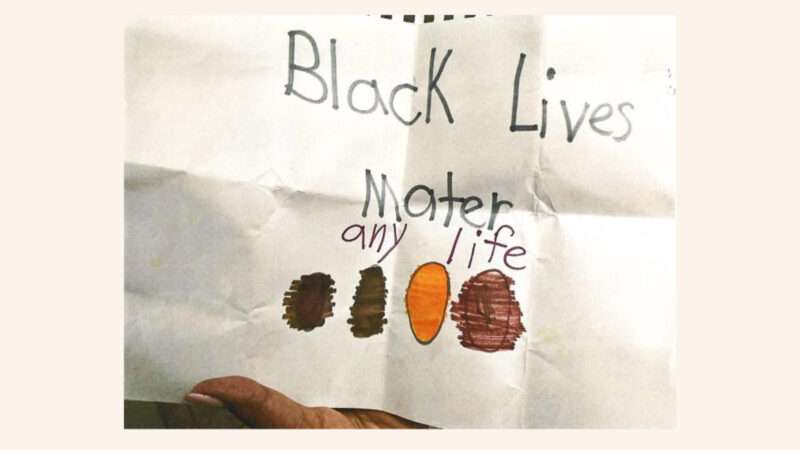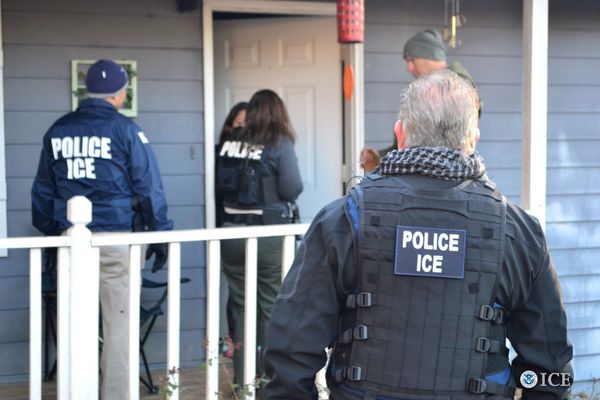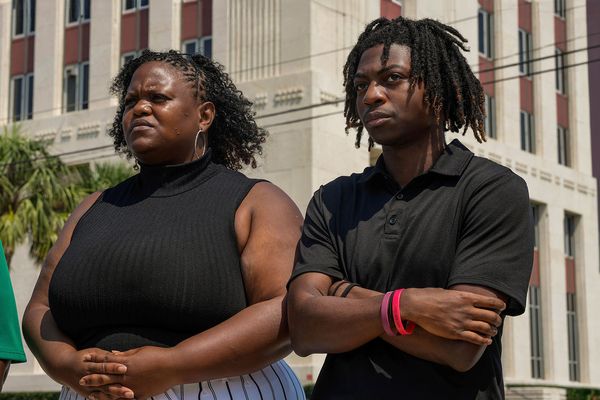
A California first-grader was punished for a drawing she made at school, resulting in a federal lawsuit that probes whether the First Amendment extends to the first-grade classroom.
In March 2021, the elementary school student, referenced in legal filings as "B.B.," drew a sketch depicting several individuals of different races, representing "three classmates and herself holding hands," the family's complaint states. Above the drawing, B.B. wrote "Black Lives Mater" [sic] with the words "any life" transcribed below the slogan.
B.B. then gave the drawing to one of her classmates, who is black, in an attempt (as she later testified) to comfort her classmate.
The words any life are, of course, similar to the phrase, "All Lives Matter," which became a controversial retort to the Black Lives Matter movement in the wake of the 2020 killing of George Floyd.
That similarity—whether the first-grader was aware of it or not—was soon to land B.B. in hot water. The same day she made the drawing, B.B. was told by the school's principal, Jesus Becerra, that her drawing was "inappropriate" and, allegedly, "racist." (The parties dispute whether Becerra told B.B. that the drawing was "racist." The defense alleges that B.B.'s testimony on the subject is inconsistent.)
B.B. was forced to apologize to her classmate, prohibited from drawing any more pictures in school, and prevented from going to recess for two weeks.
According to court documents reviewed by Reason, B.B. and her mother, Chelsea Boyle, filed a series of complaints against the Capistrano Unified School District alleging a First Amendment violation.
"For more than 100 years the Supreme Court has recognized that children retain their civil rights when in school," Caleb Trotter, an attorney for the Pacific Legal Foundation (PLF), which is representing the family, tells Reason. "Just as a public school can't punish a child for refusing to pledge to and salute the American flag, Capistrano Unified school officials could not punish B.B. for innocently straying from race-focused orthodoxy."
In February of this year, district court judge David O. Carter ruled in favor of the defendants, giving "great weight to the fact that the students involved were in first grade." PLF has appealed the decision, and the case will be heard by the U.S. Court of Appeals for the 9th Circuit. A spokesperson for PLF tells Reason that the case will likely be set for oral argument sometime in 2025.
Judge Carter admitted in his opinion granting summary judgment that "B.B.'s intentions were innocent" but noted that the relevant Supreme Court case law, Tinker v. Des Moines Independent Community School District (1969), "does not focus on the speaker's intentions."
Rather, Tinker held that, while First Amendment protections generally extend to public schools, each case turns on whether the speech in question would "significantly interfere with the discipline needed for the school to function."
This area of case law is "notoriously vague," says Barry McDonald, a law professor at Pepperdine Caruso School of Law. "In the Tinker case, the Supreme Court asserted that student speech is protected unless it is substantially disruptive of the educational process or invades the rights of other students," McDonald tells Reason. "The Supreme Court has never clarified what the latter phrase means, and lower courts have struggled to say what it means."
This ambiguity has created confusion as courts have struggled to define the limits of educational speech protections. Did B.B.'s drawing disrupt the classroom? Did it constitute the "invasion of the rights of others" as laid out in Tinker? How much does her age factor into the equation? And perhaps most importantly: How much discretion should courts give schools to make these determinations? The 9th Circuit will be tasked with answering these questions—and more—when it hears the case in 2025. Trotter, the PLF attorney, said last month in response to Carter's granting of summary judgment: "As absurd as this case is, if that decision is allowed to stand…it is a precedent."
"We are aware of the current media attention regarding this matter," says a spokesperson for the Capistrano Unified School District. "The District disputes the version of events being circulated in the media and we look forward to resolving this case through the proper legal channels."
The post California School Punishes First-Grader for a Drawing, Sparking Federal Lawsuit appeared first on Reason.com.









